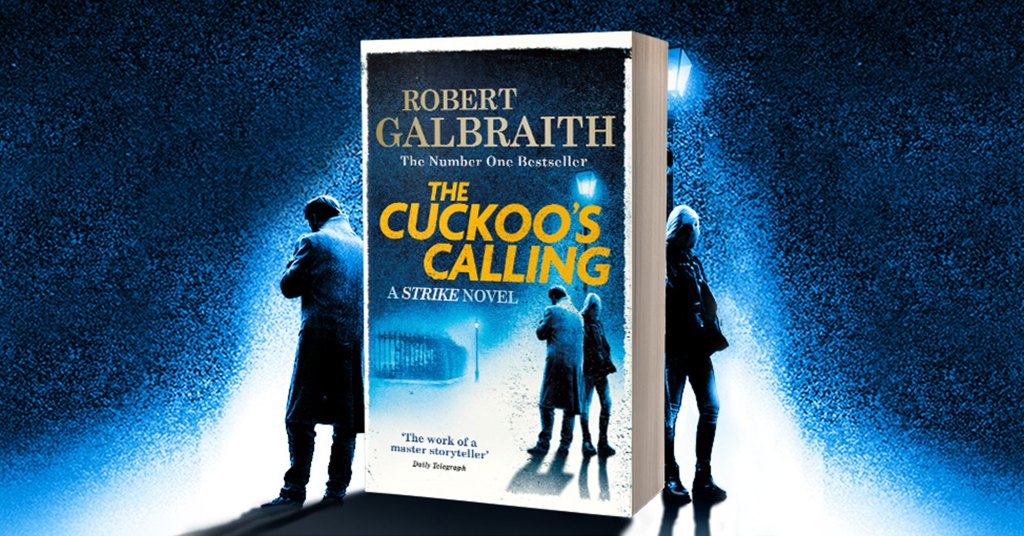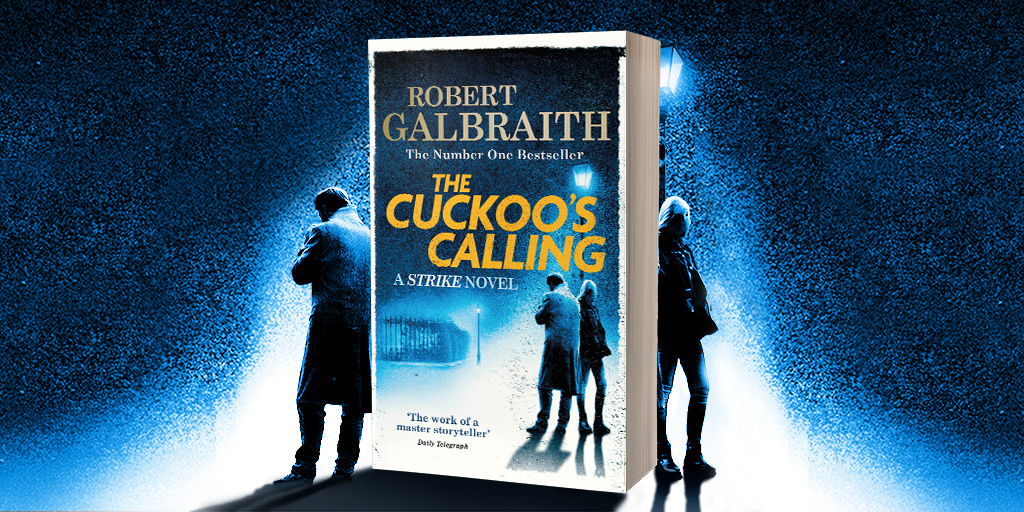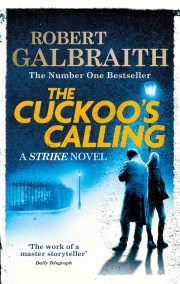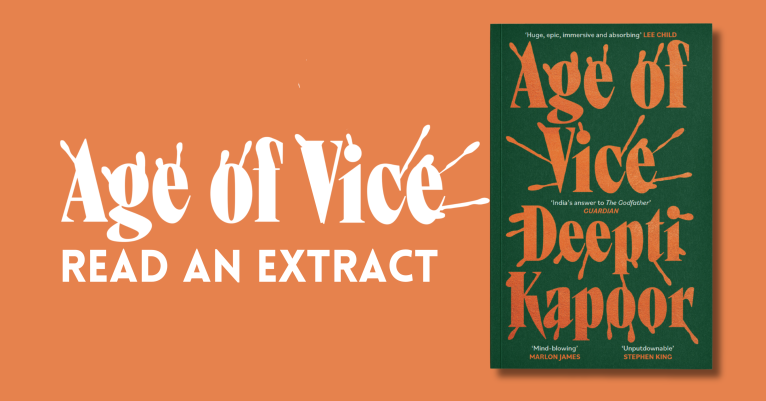Read an extract from The Cuckoo’s Calling by Robert Galbraith


The Cuckoo’s Calling by Robert Galbraith
Though Robin Ellacott’s twenty-five years of life had seen their moments of drama and incident, she had never before woken up in the certain knowledge that she would remember the coming day for as long as she lived.
Shortly after midnight, her long-term boyfriend, Matthew, had pro-posed to her under the statue of Eros in the middle of Piccadilly Circus. In the giddy relief following her acceptance, he confessed that he had been planning to pop the question in the Thai restaurant where they just had eaten dinner, but that he had reckoned without the silent couple beside them, who had eavesdropped on their entire conversation. He had therefore suggested a walk through the darkening streets, in spite of Robin’s protests that they both needed to be up early, and finally inspiration had seized him, and he had led her, bewildered, to the steps of the statue. There, flinging discretion to the chilly wind (in a most un-Matthew-like way), he had proposed, on one knee, in front of three down-and-outs huddled on the steps, sharing what looked like a bottle of meths.
It had been, in Robin’s view, the most perfect proposal, ever, in the history of matrimony. He had even had a ring in his pocket, which she was now wearing; a sapphire with two diamonds, it fitted perfectly, and all the way into town she kept staring at it on her hand as it rested on her lap. She and Matthew had a story to tell now, a funny family story, the kind you told your children, in which his planning (she loved that he had planned it) went awry, and turned into something spontaneous. She loved the tramps, and the moon, and Matthew, panicky and flustered, on one knee; she loved Eros, and dirty old Piccadilly, and the black cab they had taken home to Clapham. She was, in fact, not far off loving the whole of London, which she had not so far warmed to, during the month she had lived there. Even the pale and pugnacious commuters squashed into the Tube carriage around her were gilded by the radiance of the ring, and as she emerged into the chilly March day-light at Tottenham Court Road underground station, she stroked the underside of the platinum band with her thumb, and experienced an explosion of happiness at the thought that she might buy some bridal magazines at lunchtime.
Male eyes lingered on her as she picked her way through the road-works at the top of Oxford Street, consulting a piece of paper in her right hand. Robin was, by any standards, a pretty girl; tall and curvaceous, with long strawberry-blonde hair that rippled as she strode briskly along, the chill air adding colour to her pale cheeks. This was the first day of a week-long secretarial assignment. She had been temp-ing ever since coming to live with Matthew in London, though not for much longer; she had what she termed ‘proper’ interviews lined up now.
The most challenging part of these uninspiring piecemeal jobs was often finding the offices. London, after the small town in Yorkshire she had left, felt vast, complex and impenetrable. Matthew had told her not to walk around with her nose in an A–Z, which would make her look like a tourist and render her vulnerable; she therefore relied, as often as not, on poorly hand-drawn maps that somebody at the temping agency had made for her. She was not convinced that this made her look more like a native-born Londoner.
The metal barricades and the blue plastic Corimec walls surround-ing the roadworks made it much harder to see where she ought to be going, because they obscured half the landmarks drawn on the paper in her hand. She crossed the torn-up road in front of a towering office block, labelled ‘Centre Point’ on her map, which resembled a gigantic concrete waffle with its dense grid of uniform square windows, and made her way in the rough direction of Denmark Street.
She found it almost accidentally, following a narrow alleyway called Denmark Place out into a short street full of colourful shopfronts: windows full of guitars, keyboards and every kind of musical ephemera. Red and white barricades surrounded another open hole in the road, and workmen in fluorescent jackets greeted her with early-morning wolf-whistles, which Robin pretended not to hear.
She consulted her watch. Having allowed her usual margin of time for getting lost, she was a quarter of an hour early. The nondescript black-painted doorway of the office she sought stood to the left of the 12 Bar Café; the name of the occupant of the office was written on a scrappy piece of lined paper Sellotaped beside the buzzer for the second floor. On an ordinary day, without the brand-new ring glittering upon her finger, she might have found this off-putting; today, however, the dirty paper and the peeling paint on the door were, like the tramps from last night, mere picturesque details on the backdrop of her grand romance. She checked her watch again (the sapphire glittered and her heart leapt; she would watch that stone glitter all the rest of her life), then decided, in a burst of euphoria, to go up early and show herself keen for a job that did not matter in the slightest.
She had just reached for the bell when the black door flew open from the inside, and a woman burst out on to the street. For one strangely static second the two of them looked directly into each other’s eyes, as each braced to withstand a collision. Robin’s senses were unusually receptive on this enchanted morning; the split-second view of that white face made such an impression on her that she thought, moments later, when they had managed to dodge each other, missing contact by a centimetre, after the dark woman had hurried off down the street, around the corner and out of sight, that she could have drawn her perfectly from memory. It was not merely the extraordinary beauty of the face that had impressed itself on her memory, but the other’s expression: livid, yet strangely exhilarated.
Robin caught the door before it closed on the dingy stairwell. An old-fashioned metal staircase spiralled up around an equally antiquated birdcage lift. Concentrating on keeping her high heels from catching in the metalwork stairs, she proceeded to the first landing, passing a door carrying a laminated and framed poster saying Crowdy Graphics, and continued climbing. It was only when she reached the glass door on the floor above that Robin realised, for the first time, what kind of business she had been sent to assist. Nobody at the agency had said. The name on the paper beside the outside buzzer was engraved on the glass panel: C. B. Strike, and, underneath it, the words Private Detective.
Robin stood quite still, with her mouth slightly open, experiencing a moment of wonder that nobody who knew her could have under-stood. She had never confined in a solitary human being (even Matthew) her lifelong, secret, childish ambition. For this to happen today, of all days! It felt like a wink from God (and this too she some-how connected with the magic of the day; with Matthew, and the ring; even though, properly considered, they had no connection at all). Savouring the moment, she approached the engraved door very slowly. She stretched out her left hand (sapphire dark, now, in this dim light) towards the handle; but before she had touched it, the glass door too flew open.
This time, there was no near-miss. Sixteen unseeing stone of dishevelled male slammed into her; Robin was knocked off her feet and catapulted backwards, handbag flying, arms windmilling, towards the void beyond the lethal staircase.
Buy a copy today to keep reading:








